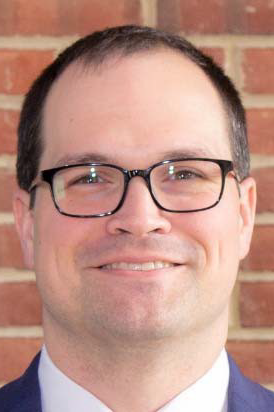 Fraser Bocell, Ph.D., is a Psychometrician and Clinical Outcome Assessment Reviewer with the Patient Science and Engagement Team in Center for Devices and Radiological Health (CDRH) at the FDA. He earned a M.Ed. and Ph.D in Measurement and Statistics from the University of Washington. At CDRH he provides expertise and training, as well as develops policy on the evaluation and use of COAs in regulatory decision-making. Prior to joining the FDA, he published on the quantitative and qualitative development and evaluation of PROMs, as well as providing statistical expertise to other projects. Dr. Bocell is an expert in psychometric methods and an applied statistician by training, specializing in latent variable models. He continues to explore new methods for developing and evaluating COAs and seeks to improve the relevance and utility of COAs in regulatory decision making.
Fraser Bocell, Ph.D., is a Psychometrician and Clinical Outcome Assessment Reviewer with the Patient Science and Engagement Team in Center for Devices and Radiological Health (CDRH) at the FDA. He earned a M.Ed. and Ph.D in Measurement and Statistics from the University of Washington. At CDRH he provides expertise and training, as well as develops policy on the evaluation and use of COAs in regulatory decision-making. Prior to joining the FDA, he published on the quantitative and qualitative development and evaluation of PROMs, as well as providing statistical expertise to other projects. Dr. Bocell is an expert in psychometric methods and an applied statistician by training, specializing in latent variable models. He continues to explore new methods for developing and evaluating COAs and seeks to improve the relevance and utility of COAs in regulatory decision making.
January 26, 2022
10:30 a.m. to 3:30 p.m. ET
Location: Interactive Online Course, delivered virtually by FDA Staff
Instructor Bios
Instructors A-N | Instructors O-Z
Fraser Bocell, Ph.D. (Clinical Outcome Assessment Reviewer, Patient Science & Engagement Program)
Allen Chen, Ph.D. (Program Manager, Patient Science and Engagement Program)
 Allen Chen, Ph.D., is Program Manager for the Patient Science and Engagement Program (PSE) in the Office of Strategic Partnerships and Technology Innovation (OST) within FDA’s Center for Devices and Radiological Health (CDRH). As Program Manager, Dr. Chen manages PSE’s operations and patient science research portfolio, and leads special projects towards ensuring that the patient voice can be seamlessly integrated in the medical device ecosystem.
Allen Chen, Ph.D., is Program Manager for the Patient Science and Engagement Program (PSE) in the Office of Strategic Partnerships and Technology Innovation (OST) within FDA’s Center for Devices and Radiological Health (CDRH). As Program Manager, Dr. Chen manages PSE’s operations and patient science research portfolio, and leads special projects towards ensuring that the patient voice can be seamlessly integrated in the medical device ecosystem.
Dr. Chen joined PSE in 2019 after serving as Lead Reviewer and Biomedical Engineer in the Division of Renal, Gastrointestinal, Obesity, and Transplant Devices (DRGOT) in CDRH’s Office of Product Evaluation and Quality (OPEQ). As a Lead Reviewer, Dr. Chen led review teams comprised of subject matter experts in the evaluation of medical device investigational and marketing submissions, postmarket signals, and compliance matters, in order to ensure the safety and effectiveness of medical devices.
Dr. Chen previously served as an American Institute for Medical and Biological Engineering (AIMBE) Scholar in CDRH’s Office of the Center Director, where he co-led the Patient-Reported Outcomes (PRO) Working Group and coordinated related strategic initiatives. Allen received a B.S. degree in Bioengineering and Business, and a Ph.D. in Bioengineering from Rice University.
Matthew Diamond, M.D., Ph.D. (Chief Medical Officer for Digital Health)
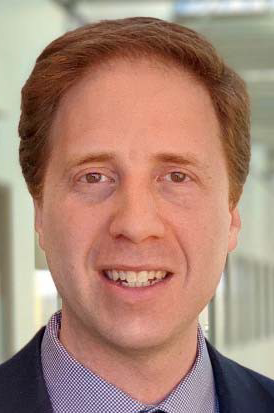 Matthew Diamond, M.D., Ph.D., is the Chief Medical Officer for Digital Health at FDA's Center for Devices and Radiological Health. Dr. Diamond leads the development and implementation of FDA’s strategic approach to artificial intelligence-based medical device software, including its proposed regulatory framework for these technologies. Serving on center, agency, and international working groups, he regularly provides consultation within and outside of the agency on digital health. Dr. Diamond has also been serving on the CDRH COVID-19 response leadership team.
Matthew Diamond, M.D., Ph.D., is the Chief Medical Officer for Digital Health at FDA's Center for Devices and Radiological Health. Dr. Diamond leads the development and implementation of FDA’s strategic approach to artificial intelligence-based medical device software, including its proposed regulatory framework for these technologies. Serving on center, agency, and international working groups, he regularly provides consultation within and outside of the agency on digital health. Dr. Diamond has also been serving on the CDRH COVID-19 response leadership team.
Dr. Diamond brings experience from his work at large and small technology companies, including as Chief Medical Officer at Nokia, and as Medical Director at Fossil Group and the startup Misfit Wearables. As Vice Chair of the Consumer Technology Association (CTA) Health & Fitness Technology Board, Dr. Diamond promoted public health applications of mobile technology, and he established an ANSI-accredited standardization committee to develop standards in digital health for wellness-related devices and apps.
Dr. Diamond has served on numerous advisory boards including for the Center for Personalized Health Monitoring at UMass Amherst and for the venture firm NGP Capital. As a wearables expert, he was Chair of the USA Technical Advisory Group to the IEC Wearables Standards Committee TC124. Dr. Diamond earned his M.D. and Ph.D. (biophysics) from the Mount Sinai School of Medicine, and he is board certified in rehabilitation medicine and sports medicine, with certification in medical acupuncture. A faculty member at NYU, Dr. Diamond is passionate about helping people improve their mobility and performance through a holistic approach to rehabilitation and technology that promotes wellness.
Sonja Fulmer, Ph.D. (Assistant Director for Digital Health Policy, Digital Health Center of Excellence)
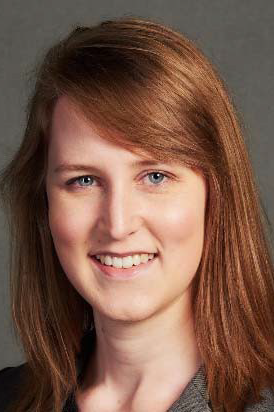 Sonja Fulmer, Ph.D., is Assistant Director for Digital Health Policy in the Digital Health Center for Excellence (DHCoE) in the Office of Strategic Partnerships and Technology Innovation, Center for Devices and Radiological Health (CDRH).
Sonja Fulmer, Ph.D., is Assistant Director for Digital Health Policy in the Digital Health Center for Excellence (DHCoE) in the Office of Strategic Partnerships and Technology Innovation, Center for Devices and Radiological Health (CDRH).
In this role, Dr. Fulmer works to help DHCoE advance and implement new policy approaches to medical device software and digital health technologies to better promote and protect public health. Before joining the DHCoE in 2020, Dr. Fulmer joined the CDRH in 2014 as an American Institute for Medical and Biological Engineering Scholar to pursue her interest in science policy after earning her undergraduate degree in Chemistry, with a Biochemistry concentration, from the University of Alabama at Birmingham and her doctorate in Chemical and Physical Biology from Vanderbilt University.
Dr. Fulmer has held several policy-focused positions in the Office of the Center Director and later as a Policy Advisor in the Office of Policy.
David Gebben, Ph.D. (Health Economist, Patient Science and Engagement Program)
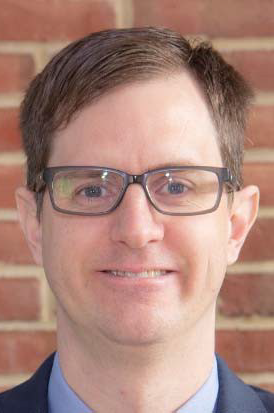 David Gebben, Ph.D., is a research economist focusing on stated preference methods applied within a health care context. Specifically, how stated preference methods can advance regulatory science to inform benefit risk evaluations, clinical trial endpoints, and inform ordering of patient priorities. Dr. Gebben is currently an assistant professor of Economics at Calvin University and works part time at FDA through an IPA.
David Gebben, Ph.D., is a research economist focusing on stated preference methods applied within a health care context. Specifically, how stated preference methods can advance regulatory science to inform benefit risk evaluations, clinical trial endpoints, and inform ordering of patient priorities. Dr. Gebben is currently an assistant professor of Economics at Calvin University and works part time at FDA through an IPA.
From 2018 to 2020, Dr. Gebben worked at FDA as a Health Economist in the Patient Science and Engagement Program. Previously, he worked at RTI Health Solutions assisting and helping oversee studies sponsored by industry. Prior to working in a health context, Dr. Gebben completed a post-doctorate at Queen’s University Belfast studying preferences for invasive plant species management. Dr. Gebben completed his Ph.D. at Colorado State University with Dr. John Loomis and completed his M.S. at Michigan State University with Dr. Frank Lupi. Prior to graduate school, he worked in international development, completing a 2.5-year internship in Haiti.
Tracy Gray, M.B.A., R.N., M.S. (Patient Engagement Lead, Patient Science and Engagement Program)
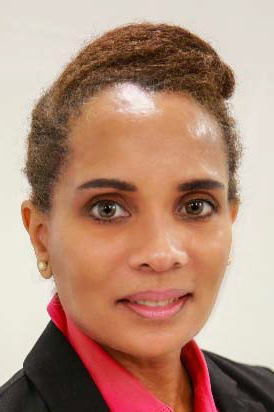 Tracy Gray is the Patient Engagement Lead in FDA’s Center for Devices and Radiological Health (CDRH), Office of Strategic Partnerships and Technology Innovation (OST), Patient Science and Engagement Program.
Tracy Gray is the Patient Engagement Lead in FDA’s Center for Devices and Radiological Health (CDRH), Office of Strategic Partnerships and Technology Innovation (OST), Patient Science and Engagement Program.
In CDRH, patient engagement refers to the “intentional, meaningful interactions with patients that provide opportunities for mutual learning and effective collaborations. These partnerships with patients help CDRH advance the development and evaluation of innovative medical products and monitor the performance of marketed devices.”
As the Patient Engagement lead, Ms. Gray works with internal and external stakeholders, to foster a culture of patient engagement in CDRH, and in collaboration with other Centers across the agency. Prior to joining the FDA, Ms. Gray held positions in the Health Resources and Services Administration (HRSA), as a Senior Nurse Consultant, Chief of the Nurse Corps Scholarship Branch and Chief of the Advanced Nursing Education Branch, overseeing branch operations, grants management and policy development that resulted in an increased supply of registered and advanced practice nurses, and nurse faculty working in rural and underserved areas across the nation.
Ms. Gray served as the Designated Federal Officer (DFO), for the National Advisory Council on Nurse Education and Practice (NACNEP), a council that makes recommendations to the Secretary and Congress, related to the nursing workforce, education and practice improvement. She has worked for the benefit of patients throughout her health care career, while providing nursing care, leading grassroots marketing and business development initiatives in a disproportionate share health system and working in the pharmaceutical industry to increase availability of therapeutic drugs for chronic conditions.
Ms. Gray earned a B.S. in Biological Sciences, with a concentration in microbiology, from the University of Maryland, College Park, and earned a M.B.A. from Marymount University, and a R.N. and M.S. degree from the University of Maryland School of Nursing, Baltimore.
Ian Marcus, M.S. (Health Scientist, Digital Health Center of Excellence)
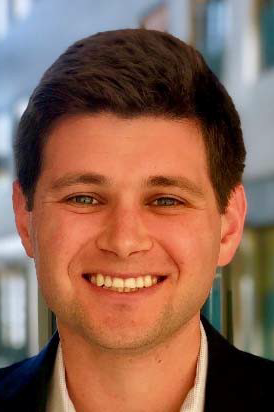 Ian Marcus is a Health Scientist in FDA’s Center for Devices and Radiological Health, Office of Strategic Partnerships and Technology Innovation, Digital Health Center for Excellence (DHCoE). Within DHCoE, Mr. Marcus is actively involved in several areas, including the development of new policies and guidance documents, internal and external inquiries, and the Pre-Cert Pilot Program.
Ian Marcus is a Health Scientist in FDA’s Center for Devices and Radiological Health, Office of Strategic Partnerships and Technology Innovation, Digital Health Center for Excellence (DHCoE). Within DHCoE, Mr. Marcus is actively involved in several areas, including the development of new policies and guidance documents, internal and external inquiries, and the Pre-Cert Pilot Program.
Mr. Marcus began his FDA career in 2015 as a Biomedical Engineer / Lead Reviewer in the Office of Neurological and Physical Medicine Devices, leading interdisciplinary teams to review 200+ pre-market and post-market medical device submissions, including: digital health technologies (e.g., wearables, mobile apps), electrical stimulators, exoskeletons, and brain computer interfaces.
He received his bachelor’s degree in Engineering Science and Mechanics with a Biomechanics Focus from Virginia Tech in 2013 and received his master’s degree in Engineering Mechanics from Virginia Tech in 2014. Prior to joining the FDA, Mr. Marcus worked as a Research Engineer at the Center for Injury Biomechanics at the Wake Forest School of Medicine.
Instructors (O-Z)
Brendan O’Leary (Deputy Director, Division of Digital Health and Digital Health Center of Excellence)
 Brendan O’Leary is Deputy Director of FDA’s Division of Digital Health and Digital Health Center of Excellence in the Office of Strategic Partnerships and Technology Innovation, Center for Devices and Radiological Health.
Brendan O’Leary is Deputy Director of FDA’s Division of Digital Health and Digital Health Center of Excellence in the Office of Strategic Partnerships and Technology Innovation, Center for Devices and Radiological Health.
The CDRH DHCoE works to ensure that patients in the U.S. have access to safe and effective medical devices that include state-of-the-art technologies to improve their lives and health.
Before joining the group in 2019, Mr. O’Leary held several positions in FDA’s Office of In Vitro Diagnostics and Radiological Health, including leadership roles in policy and operations and engineering roles in the Division of Radiological Health. Mr. O’Leary has been heavily involved in the center’s digital health efforts since they began in the early 2010s.
Mr. O’Leary received his bachelor’s degree in Mechanical Engineering from the University of Maryland, College Park, and he worked for a short time in the aerospace industry before joining FDA in 2009.
Bakul Patel, M.S., M.B.A. (Director, Digital Health Center of Excellence)
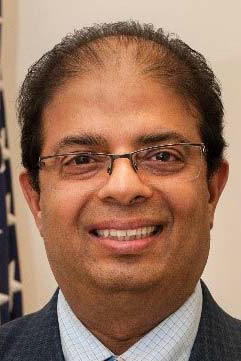 Bakul Patel is the Director for Digital Health, at the Center for Devices and Radiological Health, at the FDA.
Bakul Patel is the Director for Digital Health, at the Center for Devices and Radiological Health, at the FDA.
Mr. Patel is responsible for providing leadership, development, implementing, execution, management and setting strategic direction and regulatory policy and coordinate scientific efforts for digital health, software and emerging technologies.
Mr. Patel, in 2013, created the term “software as a medical device” (SaMD) and under his leadership the International Medical Device Regulators Forum established the globally harmonized definition of SaMD. Mr. Patel subsequently led global regulators at IMDRF to create and author the globally harmonized regulatory framework for SaMD. The concepts, principles and vocabulary created in harmonized regulatory framework has been used as a foundation and adopted by medical device regulatory bodies in the European union, Japan, Canada, Brazil, Australia and in the USA by US- FDA.
Mr. Patel is currently leading the effort for the agency in developing an innovative software precertification program to reimagine a pragmatic regulatory approach for Digital health that that aims for patients and providers to have timely access to safe and effective digital health products.
Prior to joining FDA, Mr. Patel held key leadership positions in several sectors including telecommunications industry, semiconductor capital equipment industry, wireless industry and information technology industry. His experience includes Lean Six Sigma, creating long and short-term strategy, influencing organizational change, modernizing government systems, and delivering high technology products and services in fast- paced, technology-intensive organizations.
Mr. Patel earned an M.S. in Electronic Systems Engineering from the University of Regina, Canada, and an M.B.A. in International Business from The Johns Hopkins University.
Anindita (Annie) Saha (Assistant Director, Digital Health Center of Excellence (DHCoE))
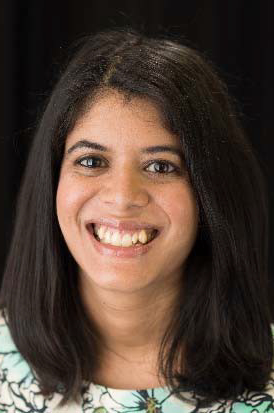 Anindita (Annie) Saha is the Assistant Director for the Digital Health Center of Excellence (DHCoE) at the FDA Center for Devices and Radiological Health (CDRH).
Anindita (Annie) Saha is the Assistant Director for the Digital Health Center of Excellence (DHCoE) at the FDA Center for Devices and Radiological Health (CDRH).
Ms. Saha is leading the development of partnerships, regulatory science, strategic planning, and operations for the newly formed DHCoE to empower stakeholders to empower digital health stakeholders in advancing healthcare. Additionally, she helped incubate and continues to support CDRH’s patient science and engagement efforts to advance the science and adoption of patient input as evidence, including patient preference information (PPI), clinical outcome assessments (COAs) including patient-reported outcomes (PROs), and patient-generated health data (PGD). These efforts include researching the use of digital health technologies to capture the patient perspective.
Previously, Ms. Saha was the Director of Partnerships to Advance Innovation and Regulatory Science (PAIRS) where she oversaw a broad program portfolio, supporting a number of strategic partnership and regulatory science programs for CDRH. This included relationship with the Medical Device Innovation Consortium and other public-private partnerships, Network of Experts, Critical Path, and technology transfer.
Ms. Saha began her FDA career as a researcher in the CDRH’s Office of Science and Engineering Laboratories in the Division of Imaging and Applied Mathematics in the area of imaging display technologies before moving to coordinate Critical Path and Regulatory Science activities for the Center. Ms. Saha has a Bachelor of Science in Bioengineering and Minor in History from the University of Pittsburgh. She was a student researcher at the McGowan Institute for Regenerative Medicine working in tissue engineering and wound healing.
Michelle Tarver, M.D., Ph.D. (Deputy Director, Office of Strategic Partnerships and Technology Innovation)
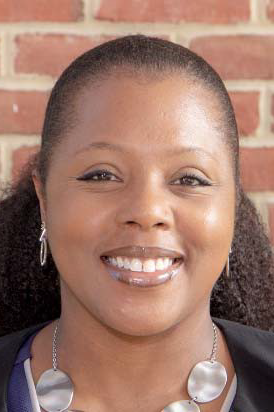 Michelle Tarver, M.D., Ph.D., is the Deputy Director of the Office of Strategic Partnership and Technology Innovation, the Director of the Patient Science and Engagement Program, and the Program Director of Patient Science in the Digital Health Center of Excellence at the Center for Devices and Radiological Health (CDRH).
Michelle Tarver, M.D., Ph.D., is the Deputy Director of the Office of Strategic Partnership and Technology Innovation, the Director of the Patient Science and Engagement Program, and the Program Director of Patient Science in the Digital Health Center of Excellence at the Center for Devices and Radiological Health (CDRH).
The Patient Science and Engagement Program fosters innovative approaches to collecting, analyzing and integrating the patient perspective in the development, evaluation and surveillance of medical devices, including digital health technologies. Under her leadership, CDRH is making the integration of the patients’ perspectives throughout the total product lifecycle of medical devices part of its daily business.
Dr. Tarver is the chair of the CDRH Collaborative Community Strategic Priority and also leads the CDRH Patient Engagement Advisory Committee efforts, an advisory panel comprised entirely of patients and caregivers providing their perspectives on general issues related to the regulation of medical devices. In addition to her experience in patient-focused efforts, Dr. Tarver has extensive experience in premarket and postmarket review of various medical devices, developing guidance documents and standards, and fostering external collaborations.
Dr. Tarver attended Spelman College in Atlanta, where she received a B.S. in Biochemistry. She completed the M.D./Ph.D. program at The Johns Hopkins University Bloomberg School of Public Health (Ph.D. in clinical epidemiology) and The Johns Hopkins University School of Medicine. Following her internal medicine internship, she completed a residency in ophthalmology with fellowship training in ocular inflammation (uveitis) both at the Wilmer Eye Institute (Johns Hopkins).
As an epidemiologist and board-certified ophthalmologist, she has worked on longitudinal epidemiological studies, clinical trials, registries, developing patient-reported outcome measures as well as surveys to capture patient preferences with medical devices. Her research has resulted in numerous peer-reviewed publications and published book chapters. As a dedicated clinician, she continues to evaluate and treat ophthalmology patients at Solomon Eye Associates in Bowie, Maryland.
Christina Webber, Ph.D. (Program Manager, Partnerships to Advance Innovation and Regulatory Science)
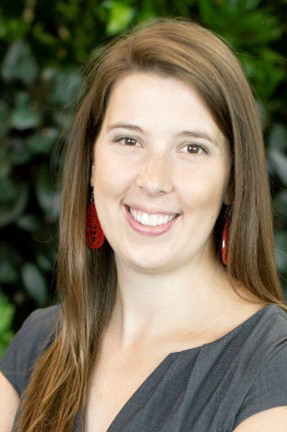 Christina Webber, Ph.D., is a Program Manager on the Partnerships to Advance Innovation and Regulatory Science (PAIRS) team in the Center for Devices and Radiological Health at the FDA.
Christina Webber, Ph.D., is a Program Manager on the Partnerships to Advance Innovation and Regulatory Science (PAIRS) team in the Center for Devices and Radiological Health at the FDA.
She is currently working on efforts to promote inclusion of the patient voice in clinical investigations, especially those used in regulatory submissions, using patient-reported outcomes (PROs), patient-generated health data (PGD), and patient preference information (PPI).
Dr. Webber has also initiated a project highlighting advances in regulatory science as a result of FDA’s Public Private Partnership with the Medical Device Innovation Consortium (MDIC). She began her time at the FDA as an American Institute for Medical and Biological Engineering (AIMBE) Scholar.
Prior to joining the FDA, she completed her Ph.D. in Biomedical Engineering and Physiology at the Mayo Clinic Graduate School of Biomedical Sciences. Her doctoral research focused on upper extremity biomechanics, characterizing the independent function in adults with traumatic brachial plexus injuries.
Dr. Webber also holds an M.S. degree in Biomedical Engineering, specializing in biomechanics, from the University of Akron where she conducted lower extremity prosthetics research. She earned her B.S. in Bioengineering at the Pennsylvania State University.
Jessica Weinberg, M.P.P. (Social Science Analyst, Patient Science and Engagement Program)
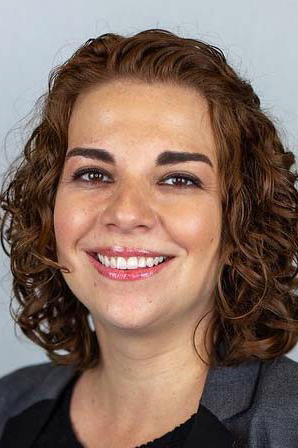 Jessica Weinberg is a Social Science Analyst and Clinical Outcome Assessment Reviewer in the Center for Devices and Radiological Health (CDRH), Patient Science and Engagement Program (PSE), at the Food and Drug Administration (FDA). She is a health researcher with expertise in qualitative analysis, including developing surveys, conducting interviews, and conducting focus groups.
Jessica Weinberg is a Social Science Analyst and Clinical Outcome Assessment Reviewer in the Center for Devices and Radiological Health (CDRH), Patient Science and Engagement Program (PSE), at the Food and Drug Administration (FDA). She is a health researcher with expertise in qualitative analysis, including developing surveys, conducting interviews, and conducting focus groups.
In her current role at FDA, Ms. Weinberg provides expertise in qualitative analysis related to the use of Clinical Outcomes Assessments and Patient Preference Information in regulatory decision-making.
Ms. Weinberg has spent her career in health research, evaluation, and policy development across the United States Department Health and Human Services (HHS). Prior to joining FDA, she served in a policy advisor role at the Centers for Medicare and Medicaid Services (CMS), working on price transparency and other insurance policy. She also acted as a policy analyst at HHS headquarters, focusing on customer experience and governance structure across HHS.
Ms. Weinberg spent several years as a communications researcher in the Office of the Commissioner at FDA, working on cross-cutting FDA communications issues, including a strategic plan for plain language and health literacy across FDA and conducting message testing for all FDA centers. She began her career as a public health analyst at the Health Resources and Services Administration (HRSA) conducting research and evaluation on safety net programs.
She has a Master’s in Public Policy with a focus in health policy, and a Bachelor of Arts in Psychology from the University of Maryland, College Park.
Top